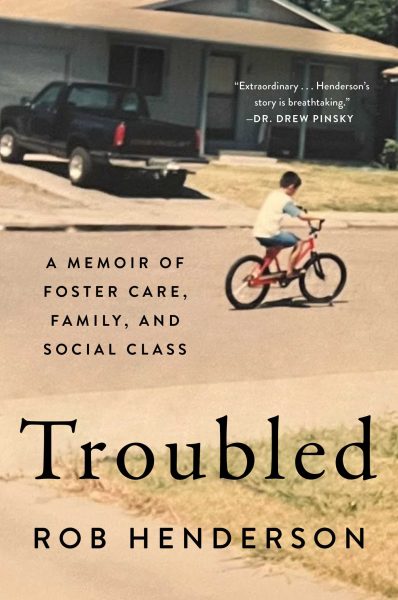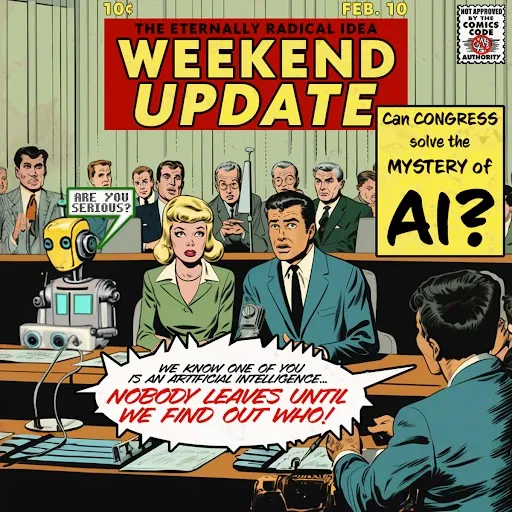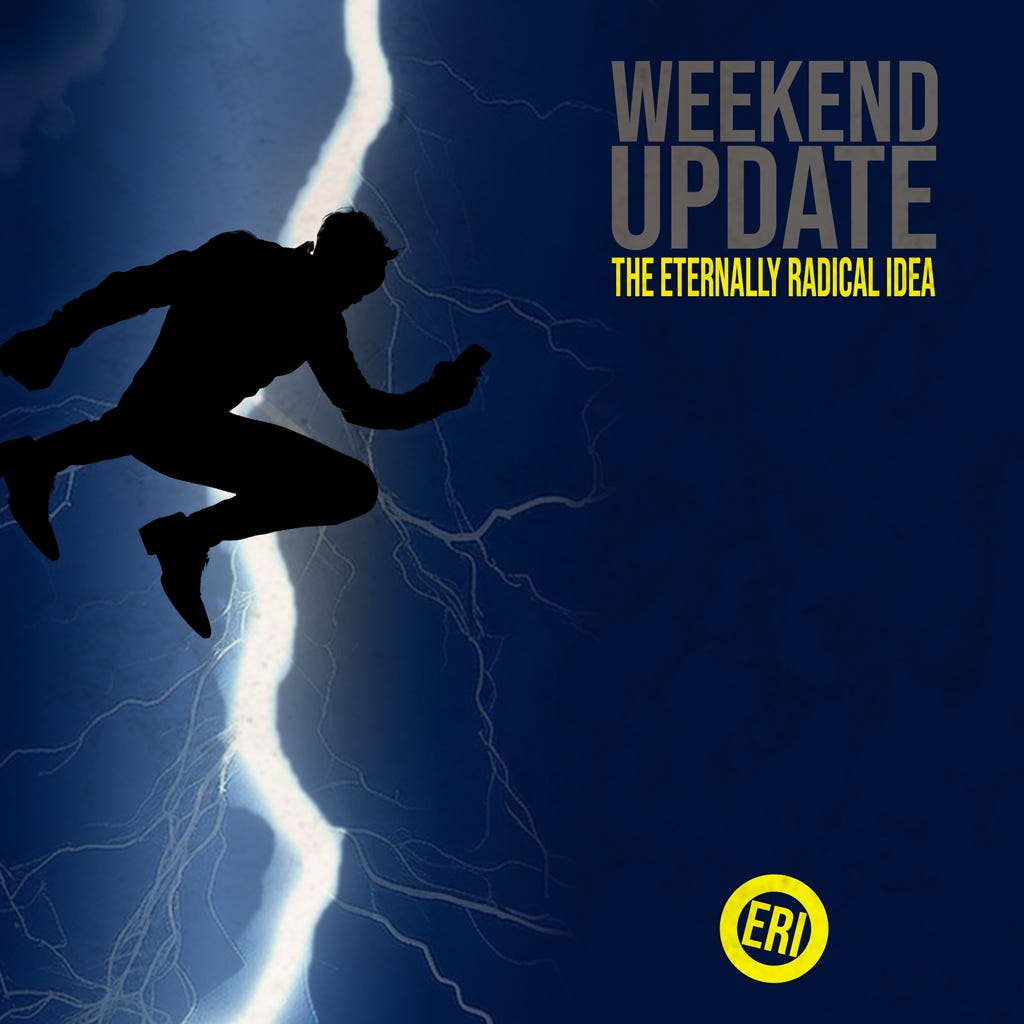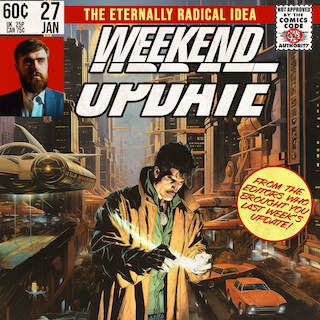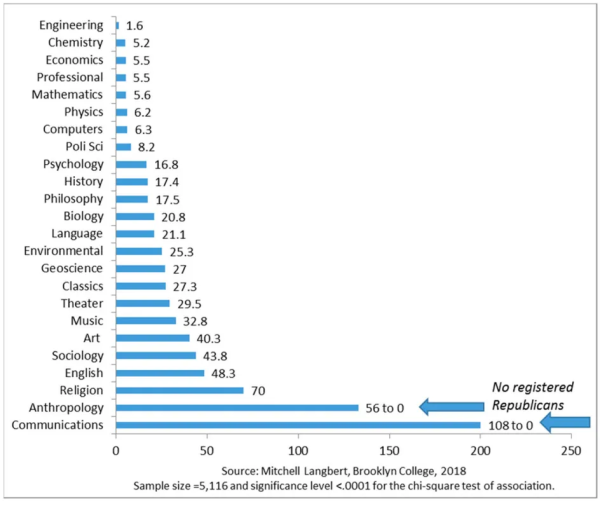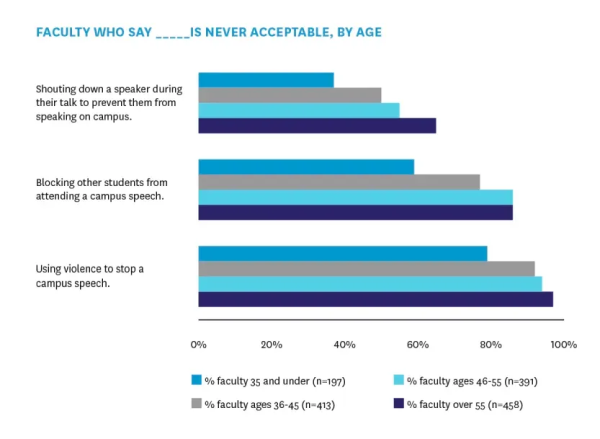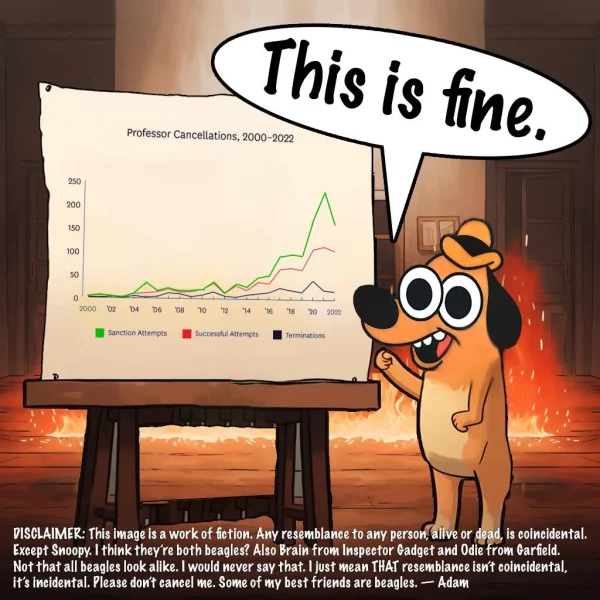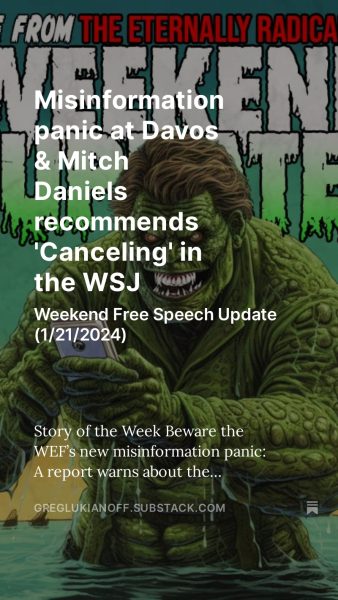THE SINGLE BIGGEST THREAT I HAVE SEEN TO FREE SPEECH AND ACADEMIC FREEDOM (from my latest Substack):
[F]rom a legislative or regulatory standpoint, the single biggest threat I have seen to free speech and academic freedom on campus has been the DEI requirements implemented by the California Community Colleges system. In an effort to combat these requirements, FIRE sued the California Community Colleges Chancellor and the members of its Board of Governors, as well as the State Center Community College District.
In the case, FIRE is representing six tenured professors, each of whom teach at one of three Fresno-area community colleges within the State Center Community College District. Under the new regulations, all of the more-than-54,000 professors who teach in the system must incorporate “anti-racist” viewpoints into classroom teaching and pledge allegiance to contested ideological viewpoints. This includes requiring professors to “acknowledge” that “cultural and social identities are diverse, fluid, and intersectional,” and to develop “knowledge of the intersectionality of social identities and the multiple axes of oppression that people from different racial, ethnic, and other minoritized groups face.”
Under these regulations, faculty performance and tenure will also be evaluated based on professors’ commitment to and promotion of these government-mandated viewpoints. As our client, Reedley College professor Bill Blanken, said, “I’m a professor of chemistry. How am I supposed to incorporate DEI into my classroom instruction? What’s the ‘anti-racist’ perspective on the atomic mass of boron?”

